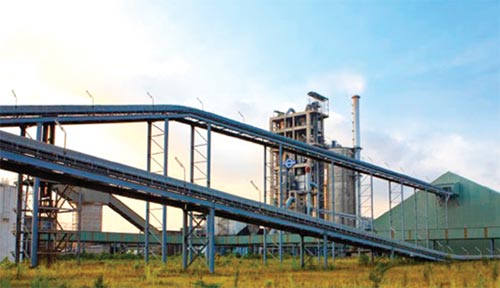Thang Long Cement acquisition proves fruity

Semen Gresik, Indonesia’s largest cement maker, is reportedly preparing to double the annual capacity of 2.3 million tonnes of the Thang Long Cement Plant in the north-eastern province of Quang Ninh’s Hoanh Bo district through building the second production line.
Thang Long Cement has now grown into a major cement supplier for northeastern localities, while retaining a stable export market and a solid position in the domestic cement industry.
After the acquisition, Thang Long Cement’s export volume accounted for about 40 per cent of the company’s production, and its products were exported to Indonesia, Singapore and some countries in the Middle East.
Last year, when the domestic market reported low consumption, Thang Long Cement reported it had continued to operate at full capacity thanks to stable local and export demand and head of the company’s administrative and human resource department Nguyen Van Quang said that the company’s entire annual output had been sold.
Early this month, the Philippines became the company’s latest output market when it imported 4,000 tonnes of cement.
Thang Long Cement’s plant is conveniently located near to Cai Lan deep-water port.
The Indonesian partner said that transportation costs would be even lower when the company focused on higher exports.
The Thang Long 2 Cement project is on the list of projects approved by the prime minister in 2011 for investment during the 2016-2020 period and features in the country’s sectoral master plan.
Industry commentators have suggested that foreign investors will do well when investing in domestic companies.
Nguyen Quang Cung, chairman of Vietnam Cement Association, however, rejected the idea of selling effectively running cement businesses to foreign partners.
Besides, two years ago, the Vietnam Association of Building Materials (VABM) sent a raft of proposals to the government and the Ministry of Construction attempting to stop foreign cement companies from investing in Vietnamese cement plants.
“Cement is an important strategic item associated with non-renewable natural resources. Therefore, selling to foreign partners needs careful consideration,” said Tran Van Huynh, VABM’s chairman.
What the stars mean:
★ Poor ★ ★ Promising ★★★ Good ★★★★ Very good ★★★★★ Exceptional
Latest News
More News
- State corporations poised to drive 2026 growth (February 03, 2026 | 13:58)
- Why high-tech talent will define Vietnam’s growth (February 02, 2026 | 10:47)
- FMCG resilience amid varying storms (February 02, 2026 | 10:00)
- Customs reforms strengthen business confidence, support trade growth (February 01, 2026 | 08:20)
- Vietnam and US to launch sixth trade negotiation round (January 30, 2026 | 15:19)
- Digital publishing emerges as key growth driver in Vietnam (January 30, 2026 | 10:59)
- EVN signs key contract for Tri An hydropower expansion (January 30, 2026 | 10:57)
- Vietnam to lead trade growth in ASEAN (January 29, 2026 | 15:08)
- Carlsberg Vietnam delivers Lunar New Year support in central region (January 28, 2026 | 17:19)
- TikTok penalised $35,000 in Vietnam for consumer protection violations (January 28, 2026 | 17:15)
















 Mobile Version
Mobile Version